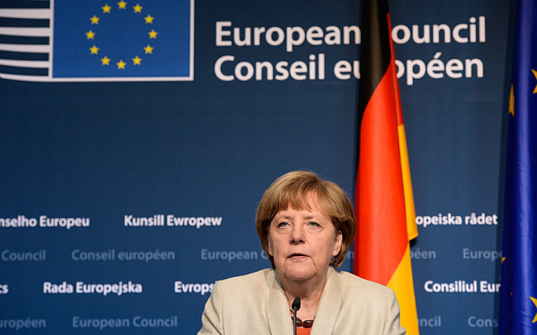After several months of political crisis, Angela Merkel was finally re-elected as Chancellor yesterday morning, beginning her fourth term.
At the heart of the coalition agreement, Angela Merkel’s European program is expected to be clarified in the coming weeks.
After several months of negotiations to find a majority, it is finally “the outgoing and unloved coalition bringing together conservatives (CDU/CSU) and social democrats (SPD) that is being renewed.”
“A new momentum for Europe”
This new mandate of Angela Merkel is “marked by the ‘European revival’.” The coalition agreement, the roadmap of the new government, opens with a chapter titled “a new momentum for Europe.”
Apart from the increase in Germany’s contribution to the EU budget, the major project provided for in the text is the strengthening of the eurozone. On this issue, Germany wants to act as a bridge between the North and the South.
The member states are indeed far from sharing the same vision of the future of the eurozone. France would like to equip it with a “Finance Minister,” as well as an “investment budget” to facilitate its stabilization and support structural reforms.
Eight Northern European countries issued a joint statement last week, warning that discussions on the future of the Economic and Monetary Union (EMU) should take place in an inclusive format.
The finance ministers of Denmark, Estonia, Finland, Ireland, Latvia, Lithuania, the Netherlands, and Sweden thus call for structural reforms within the member countries, before implementing any mechanism that would mutualize financial risks.
Angela Merkel has so far offered only cautious support for the idea of an investment budget for the eurozone and has not commented on the French idea of an EU Finance Minister.
The Chancellor will travel to Paris before the European Council meeting on March 22-23 to meet with the French President. A meeting that should allow the Franco-German couple to provide clarity on what they consider to be the next step.


